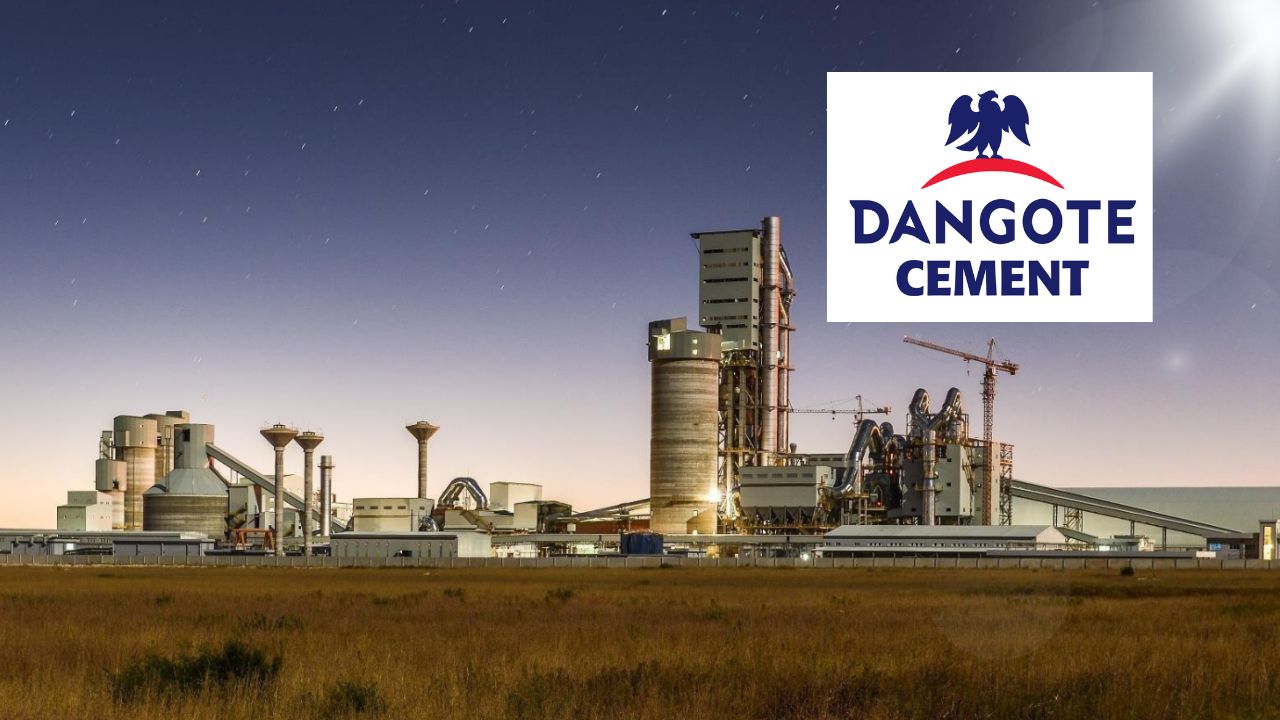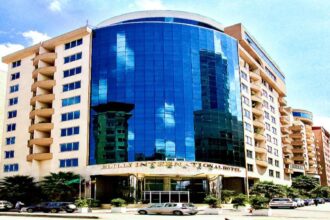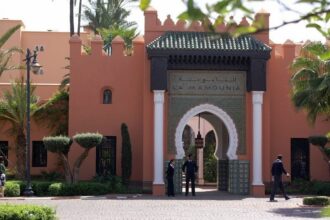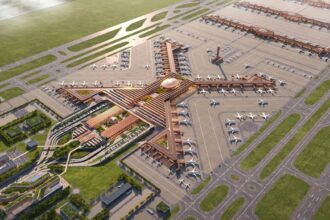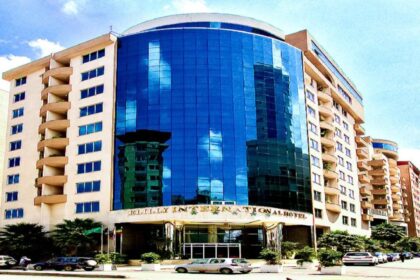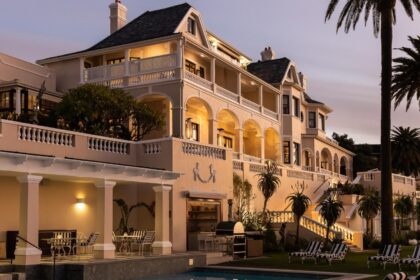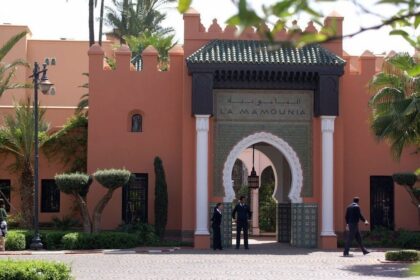At a Glance
- Dangote Cement lost nearly $1 billion in market value in 48 hours, falling from $5.26 billion to $4.25 billion on the Nigerian Exchange.
- The company’s share price dropped 18.8%, impacted by currency devaluation and broader economic challenges, despite strong revenue growth in 2024.
- Airtel Africa and BUA Foods now lead the Nigerian Exchange, surpassing Dangote Cement in market capitalization.
Africa’s largest cement producer, Dangote Cement, has suffered a stunning decline on the Nigerian Exchange (NGX), losing its position as the most valuable company on the bourse and shedding nearly $1 billion in market capitalization in just 48 hours. This unexpected drop has sent shockwaves through the financial markets and triggered fresh scrutiny of the company’s performance in a challenging economic climate.
Just days ago, Dangote Cement, owned by Africa’s richest man, Aliko Dangote, stood firmly at the top of the NGX with a market capitalization of $5.26 billion, according to a report by Shore.Africa. However, the company’s situation has rapidly changed, with its share price dropping 18.8 percent—from N478.8 ($0.31) on Jan. 13, 2025, to N387.9 ($0.25) at the time of this report. This sharp decline resulted in a loss of $987.41 million in market value, from N8.14 trillion ($5.24 billion) to N6.61 trillion ($4.25 billion).
The reversal not only cost Dangote Cement its top position but relegated it to third place on the NGX, trailing behind Airtel Africa Plc and BUA Foods. Airtel Africa, the pan-African telecommunications giant and a subsidiary of Indian conglomerate Bharti Airtel, now leads the market with a valuation of N8.1 trillion ($5.2 billion). Meanwhile, BUA Foods, the diversified food business controlled by Nigerian billionaire Abdul Samad Rabiu, occupies second place.
Currency devaluation hits Dangote Cement hard
The recent drop in Dangote Cement’s valuation marks another chapter in the company’s ongoing struggles. Despite being Africa’s largest cement producer, with an annual capacity of 52 million metric tonnes and operations in 10 countries, Dangote Cement has faced persistent macroeconomic challenges.
In 2024, the company’s market capitalization fell by $1.02 billion, largely due to Nigeria’s currency devaluation. Although its share price rose by nearly 50 percent in local terms—from N319.9 to N478.8—this gain translated to a 16.9 percent decline in U.S. dollar terms, reflecting the complexities Nigerian companies often navigate.
While Dangote Cement saw a 69 percent revenue increase in the first nine months of 2024, growing from N1.51 trillion ($919.1 million) to N2.56 trillion ($1.56 billion), its net profit showed only a slight increase, from N277.5 billion ($168.9 million) to N279.1 billion ($170 million). This modest profit growth highlights the mounting operating and financing costs.
The recent dip in its share price, alongside broader market volatility, speaks to investor concerns about Dangote Cement’s ability to sustain its progress amid ongoing economic challenges.
Strategic moves amidst market uncertainty
Despite its recent struggles, Dangote Cement remains a formidable force in Nigeria’s industrial sector. In November 2024, the company’s board approved a new bond issuance as part of its N300 billion ($180.5 million) multi-instrument program.
The initiative aims to refinance existing debt and bolster working capital, signaling the company’s commitment to strengthening its financial position. As of Sept. 30, 2024, Dangote Cement reported total assets of N5.54 trillion ($3.37 billion) and retained earnings of N846.1 billion ($514.4 million), underscoring its resilience in a turbulent economic environment.
Additionally, Dangote Cement’s pan-African operations have emerged as a bright spot, benefiting from currency translation gains that helped offset domestic challenges. This strategic diversification remains a critical component of the company’s long-term growth plan, particularly as Nigeria grapples with macroeconomic instability.
Airtel, BUA Foods dominate Nigerian Exchange
The rise of Airtel Africa and BUA Foods to the top of the Nigerian Exchange reflects the evolving dynamics of Nigeria’s corporate landscape. Airtel Africa, with its vast telecommunications network, meets the growing demand for connectivity across the continent. BUA Foods, offering products like sugar, flour, pasta, and edible oils, remains a key player in Nigeria’s food industry.
Dangote Cement, despite recent challenges, shows resilience. The company now faces the task of stabilizing its share price and earnings amid economic pressures such as currency fluctuations, inflation, and market volatility. With a bond issuance program underway and expansion across Africa, stakeholders are closely watching how the company navigates these challenges.
While its market capitalization has declined, it also presents new opportunities. Aliko Dangote and his leadership team are focused on rebuilding investor confidence and driving sustainable growth in a competitive market.

